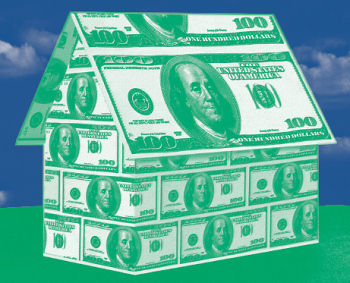
15A012 Banking in the ZGS by Jim Davies, 2/14/2015 
It will be so different from today, it's really hard to imagine. I'm not even sure that when government has evaporated for want of employees, banks will even exist. A bank offers the service of safe storage of money, and in the coming ZGS a good deal of the money will take the form of gold and silver, so that service would command a price. Nothing quite like a bank vault for holding bullion - wealth not wanted for use from day to day. So storage, for a fee, may be one function that will continue to be offered. Banks also offer to transfer funds, ie to facilitate payments over distance; they use checks and wire transfers, and neither is fast compared to such services as Paypal. Already here in addition is P2P; that is person to person, safely encrypted transfer of money in purely electronic form between two people anywhere, instantaneously and cheaply. In P2P there is no third party holding funds, such as Paypal; the funds are in your e-wallet and are zipped to his e-wallet, and nobody else need be the wiser. Bitcoin leads this facility, and it's very promising indeed. Since no third party is involved and since the transactions are encrypted, it may become fully insulated from government spying and therefore potentially destroy the latter's ability to tax; for it taxes whatever moves, but only if it moves visibly. Very attractive idea; but it cannot replace education as a sine qua non for ending the government era. It will I hope be a valuable accelerator of that process, but withdrawing labor is the only thing that will cause government to cease to exist, and that will happen only when everyone grasps why he needs to withdraw it. Once it's gone, however, it's hard to think why anyone would wish to involve a third party in his money transactions, when all such a bank does is to slow them down and skim off a charge. So I think that function, traditional though it is, will fade away fast.
To answer that, we must know where the banker will find the money to lend. Will it come from depositor's funds, which they placed in his vault? - hardly so, for money loaned out at risk is not the same as gold bars under lock and key. So perhaps he will offer to store money free, provided he is allowed to lend it out as above; perhaps some will like that offer. It's like what the Savings & Loan institutions used to do. Alternatively the banker may act as a mutual investment firm; inviting shareholders to take part in the business of lending funds for such purposes, at interest. But the present practice of writing a mortgage which is then immediately sold to a shadowy quasi government outfit that obtains money from a printing press, will cease and desist. That will bring consequences. The most obvious will be that money for house-buying will be much less readily available. That will depress the price that can be charged for houses. Clearly those prices will hit a floor, so to speak, because none will be built unless the builder can make a nice profit; but some of today's prices are absurdly high (because "money" has been so easy to print) so they will tumble like a rock. Good news for buyers, less so for sellers. Will this relative shortage of capital also hit the ability of businesses to grow? - not at all. The traditional sources of such capital will remain: offer shares to investors, and/or offer them bonds (promises to repay with interest) and, of course, self-generated profits, which is the fundamental way free capitalism works. Since the latter will not be taxed away, they will be more available in the ZGS, not less so. But none of that needs a banker. The last thing bankers do today is to serve government as the engine of inflation, so that it can shower voters with goodies without having to burden them with extra taxes. This is not a traditional function of banking, but has been an actual and major one since 1913. The procedure is that when someone deposits $100, it can lend out at interest $90 of it, then $81 of the $90, and so on ad inf. Net effect: huge earnings on the original $100 deposit. This is "Fractional Reserve Banking" and is a major scam. It will not survive the dissolution of government. Since the scam is a major source of profits for the banking trade, we have here a further reason to suppose that banks will not survive it either. |
 What else do banks do? - they lend, kind-of. You need a few grand to tide your business over a rough patch, and for a handsome fee your friendly banker will provide them... provided you can prove the loan isn't really needed. You want to buy a house, and if he's satisfied you can afford it, he'll produce a quarter meg to make it possible. Under the Community Reinvestment Act he'll even do so if he can see you can't afford it, and thereby bring about a financial collapse; but that's
What else do banks do? - they lend, kind-of. You need a few grand to tide your business over a rough patch, and for a handsome fee your friendly banker will provide them... provided you can prove the loan isn't really needed. You want to buy a house, and if he's satisfied you can afford it, he'll produce a quarter meg to make it possible. Under the Community Reinvestment Act he'll even do so if he can see you can't afford it, and thereby bring about a financial collapse; but that's 







